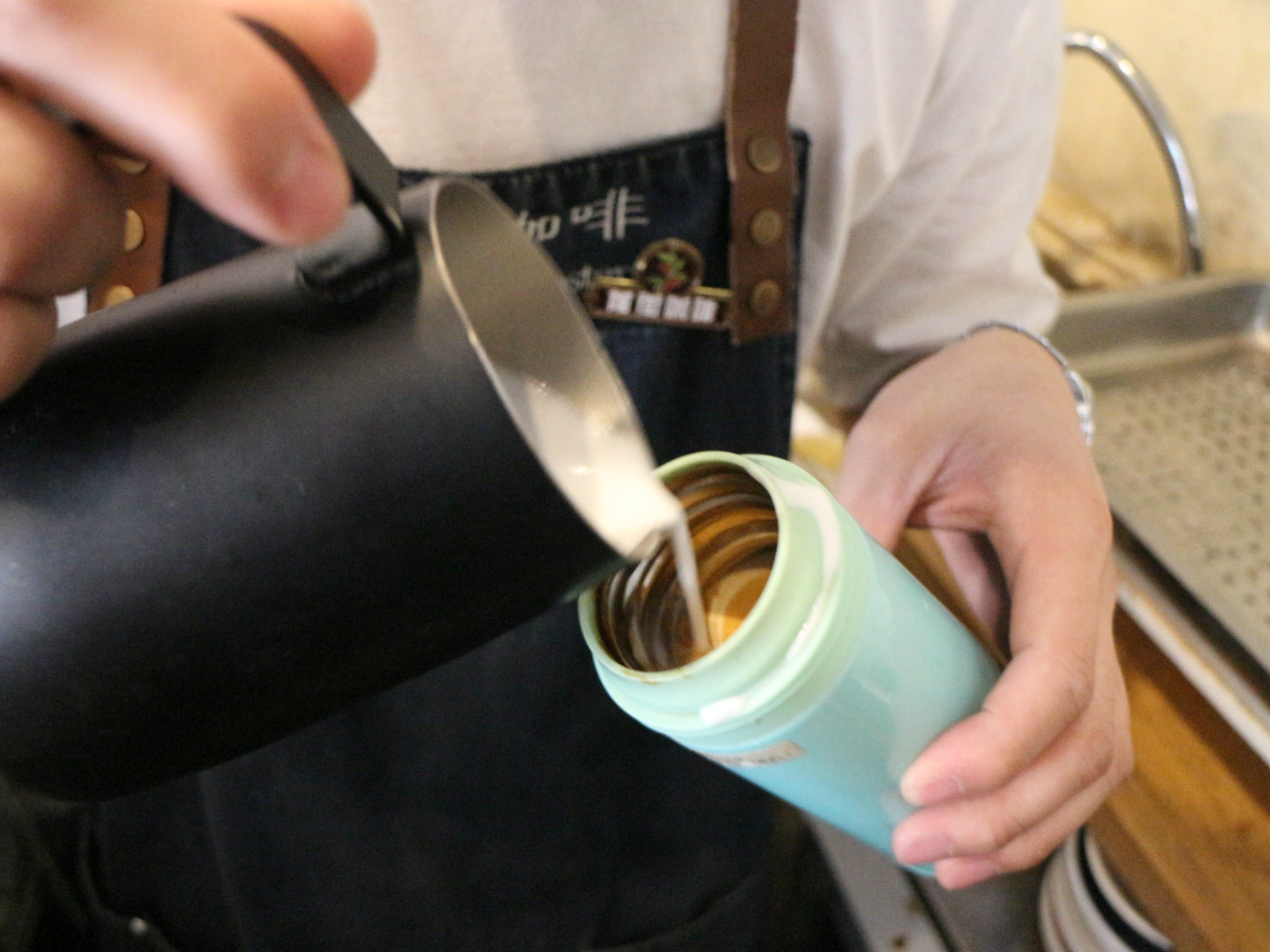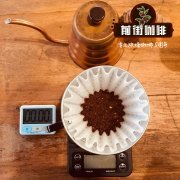Is Blue Mountain No.1 coffee beans authentic at Resource Manor in Jamaica? Recommendation of Blue Mountain Manor in Jamaica

Professional coffee knowledge exchange more coffee bean information please follow the coffee workshop (Wechat official account cafe_style)
Resource Manor Blue Mountain, Jamaica
Blue Mountain Peaberry
Grade: NO.1
Treatment: washing
Flavor: rich aroma, mild taste, low acidity, milk chocolate finish, good physique.
In 1953, the Jamaican government established the Jamaican Coffee Authority (Coffee Industry Board, referred to as CIB) to manage the quality of Jamaican coffee.
Jamaica is the first country in the world to distinguish coffee names on a regional basis. Like French wine, cheese, cream, etc., will be named after the country of origin.
All coffee exported from Jamaica can only be exported through the Jamaican Coffee. In particular, coffee harvested from the Blue Mountain area authorized by law is absolutely 100% Blue Mountain coffee.
The throbbing of R.S.W Manor in Blue Mountain
Blue Mountain Coffee from the Blue Mountains, the highest elevation in Jamaica, in the Caribbean, R.S.W ESTATES Manor (Resource, Sherwood Forest, Whitfield Hall) is one of the highest estates in the legal Blue Mountains area.
Resource Manor is located in Yallahs Valley, Alesi Valley, about an hour and a half drive from the capital Kingston Kingston. The planting area of coffee has expanded from 4 hectares 40 years ago to 12 hectares today. Coffee is planted on the hillside of the northwest of the Blue Mountains, which is about 1200 meters above sea level. The production process is first washed and then dried by machine. All these shell beans are sunburned to 11%-13% of the moisture content of raw beans. This sun drying process makes the raw beans change again, making the overall aroma of the coffee thicker, and finally the defective beans are removed by manual selection, making the raw beans both complete and beautiful.
The following is an introduction to Resource,Sherwood Forest,Whitfield Hall:
The Resource Manor is located in the Yallahs Valley in the Blue Mountains. Along the road to the statutory Blue Mountain producing area, it will first pass through Mavis Bank and rise along the valley after crossing the Yallahs River. While the Resource Manor is just below the 100-year-old cinchona tree medicinal botanical garden, with a total elevation of about 1200 meters, the resource manor owner Cecil Langford has been operating the resource manor for more than 40 years, and the harvest period is from November of each year to early May of the next year. As soon as the harvest time comes, four full-time farmers will become more than 60 local harvesters to assist in the harvest, because the estate has expanded from 10 acres to 30 acres today.
Sherwood Forest refers to the Blue Mountain Manor Group composed of Sherwood Forest&Eccleston Plantations,Upper New Battle and Lower New Battle, which belongs to a century-old farm rarely seen in the Blue Mountain producing area. Coffee has been planted since the early 18th century, with a total area of about 1000 acres and an altitude of 800m ~ 2000 m.
The coffee trees planted by Sherwood Forest are developed according to topography, sunshine and seasonal mountain springs and volcanic types, and its purpose is to provide the best growing environment for coffee trees in each independent area. Sherwood Forest has the largest high-altitude planting type in the statutory Blue Mountain area, nicknamed "Big Level" by locals. This high-altitude planting type is about 4400 feet above sea level and covers an area of 100 acres. And has a rich crimson volcanic soil and blue mountain top slowly floating down the cold cloud environment, so the coffee produced by Sherwood Forest is always proud of.
Sherwood Forest itself has a complete washing plant, and currently focuses on processing coffee cherries for RSW and, in the early days, Arntully,Radnor,Brook Lodge,Minto,Epping Farm and Abbey Green. Dealing with high-quality coffee cherries.
Whitfield Hall Manor is mainly engaged in the hotel business, located in the center of the Blue Mountains at an altitude of about 4000 feet.
Whitfield Hall Manor first started to produce coffee by William Whitfield in 1776. In its heyday, it produced coffee on 300acres and had its own processing plant. Unfortunately, it was destroyed by a flood in 1909. Great House in Whitfield Hall Manor can provide accommodation, visit the estate of RSW, visit the washing plant of herwood Factory, and so on.
Whitfield Hall Manor currently has a production area of only 40 acres and uses low-density coffee trees to maintain the tradition of the estate itself and produce the best blue mountain beans in Jamaica.
The mature coffee cherries produced by RSW Estate will be sent to Sherwood Forest for treatment after harvest, and the processing process is as large as visual inspection to remove sundries and some missing fruits, and peel and pulp within 12 hours of delivery, while there is a sugary sticky layer outside the pulp, which will also be removed during treatment, and most coffee fruits will be removed at this stage. In order to save time, a hard brush is used to brush off the pulp layer and mucus, while RSW Estate uses fermentation to let the sticky layer fall off naturally, wash the coffee fruit when finished, and then dry these shell beans (parchment coffee) in a clean cement ground called barbeques.
Drying in the sun for a long time also increases the sweetness and flavor of raw coffee beans, while RSW Estate is dried in 100% sunlight (drying) without machine rapid drying). In the drying process, the moisture content of the beans must be completed between 11% and 13% and then moved to 24.C constant temperature, and the treatment in a humid environment for 2 to 3 months will make the flavor better.
Small batches of low-temperature shelling, polishing and grading will be performed at the exit, and when these actions are completed, all the coffee beans with poor flavor, such as manual meticulous selection of beans, notched beans, broken beans, discolored beans and so on, will be selected out. Each manual worker can only pick out about 75 pounds of raw coffee beans every day. When the artificial beans are moved back to temperature, and the constant humidity environment is stored in a constant humidity environment, they will be tested by the Jamaican Coffee Bureau before final export. After passing the test, oak barrels are packed at the Sherwood factory and then exported by air to all parts of the world.
END
Important Notice :
前街咖啡 FrontStreet Coffee has moved to new addredd:
FrontStreet Coffee Address: 315,Donghua East Road,GuangZhou
Tel:020 38364473
- Prev

Introduction of Yejia Xuefei Witch Series Coffee beans the difference between washing and solarization in Kongjia Village
Professional coffee knowledge exchange for more information about coffee beans, please follow the coffee workshop (Wechat official account cafe_style) Ethiopia. Witch girl series. Yeah, Jia Xuefei. The Kongs. Washed G 1. (300) Ethiopia Yirgacheffe Konga Washed G 1 is ground with citrus, bergamot, black tea and orange blossom aromas with peach aromas. You can feel orange juice and orange when you sip it.
- Next

Bolivian coffee is produced in this region, and in the past it had a high reputation in Europe.
Professional coffee knowledge exchange more coffee bean information please pay attention to the coffee workshop (Wechat official account cafe_style) Bolivia is one of the most difficult growing areas in the world, transportation and climate are the biggest problems. After a special relationship of origin and cooperation this year, we strongly recommend friends who love alpine coffee with rich flavors such as cherry fruit, cream, chocolate and caramel.
Related
- Detailed explanation of Jadeite planting Land in Panamanian Jadeite Manor introduction to the grading system of Jadeite competitive bidding, Red bid, Green bid and Rose Summer
- Story of Coffee planting in Brenka region of Costa Rica Stonehenge Manor anaerobic heavy honey treatment of flavor mouth
- What's on the barrel of Blue Mountain Coffee beans?
- Can American coffee also pull flowers? How to use hot American style to pull out a good-looking pattern?
- Can you make a cold extract with coffee beans? What is the right proportion for cold-extracted coffee formula?
- Indonesian PWN Gold Mandrine Coffee Origin Features Flavor How to Chong? Mandolin coffee is American.
- A brief introduction to the flavor characteristics of Brazilian yellow bourbon coffee beans
- What is the effect of different water quality on the flavor of cold-extracted coffee? What kind of water is best for brewing coffee?
- Why do you think of Rose Summer whenever you mention Panamanian coffee?
- Introduction to the characteristics of authentic blue mountain coffee bean producing areas? What is the CIB Coffee Authority in Jamaica?

